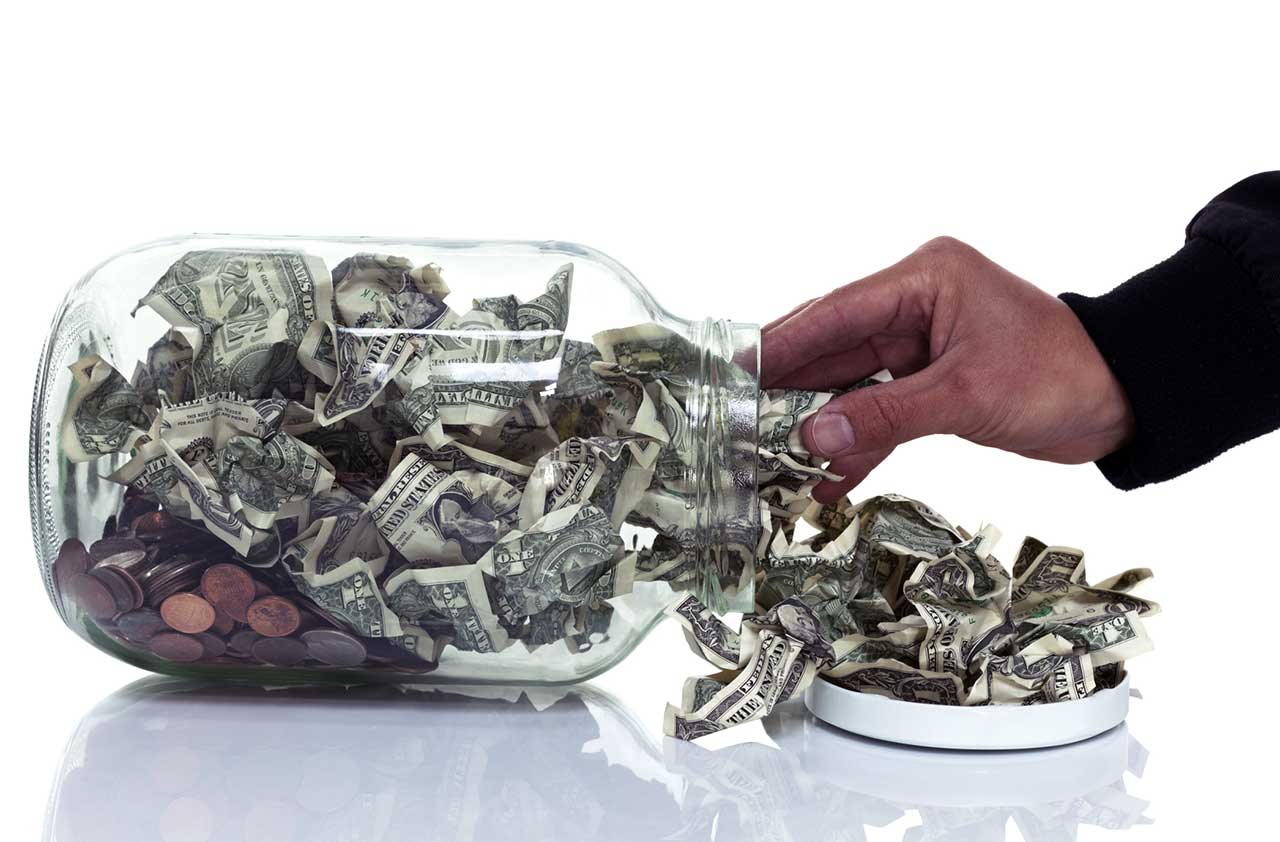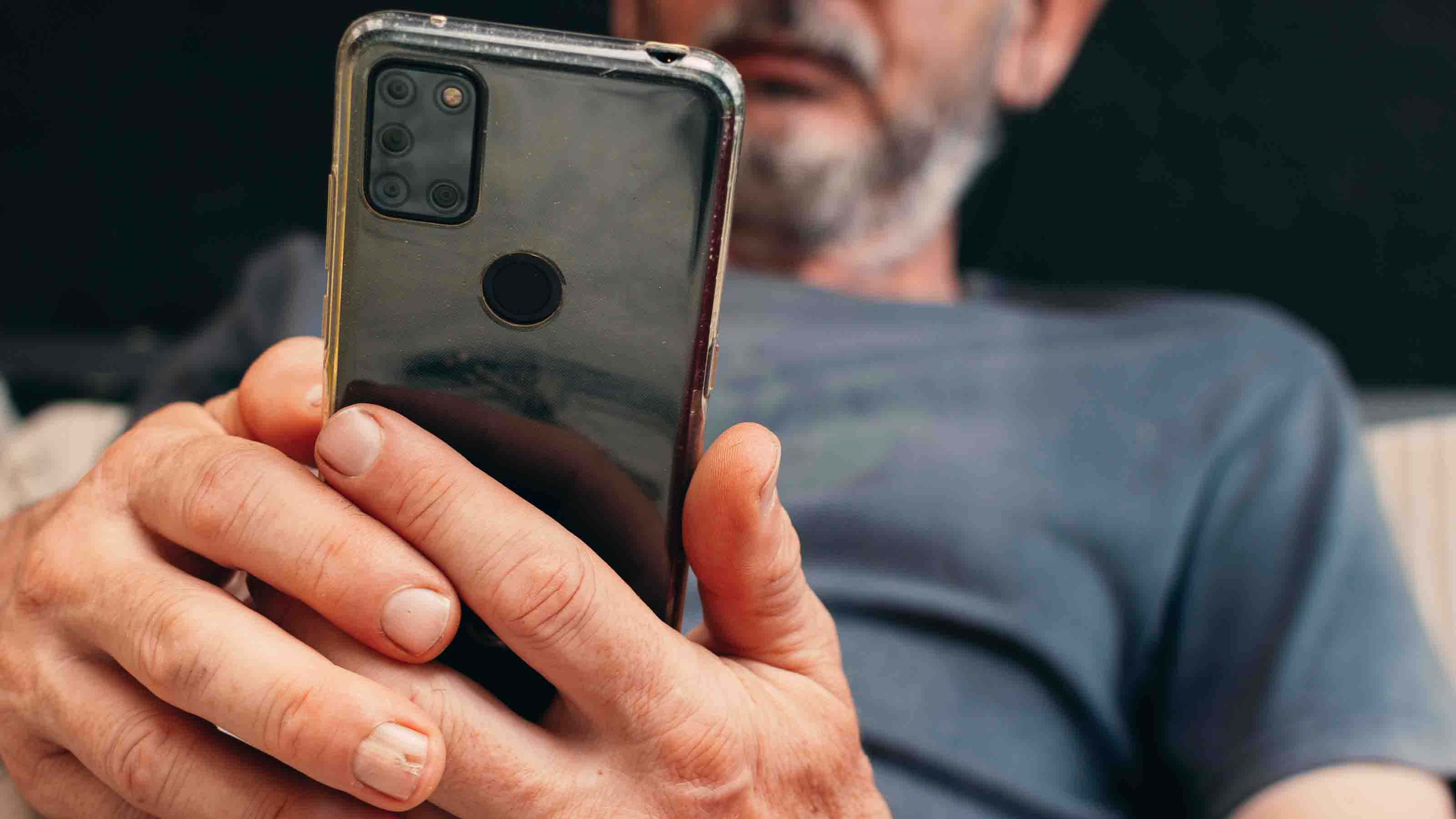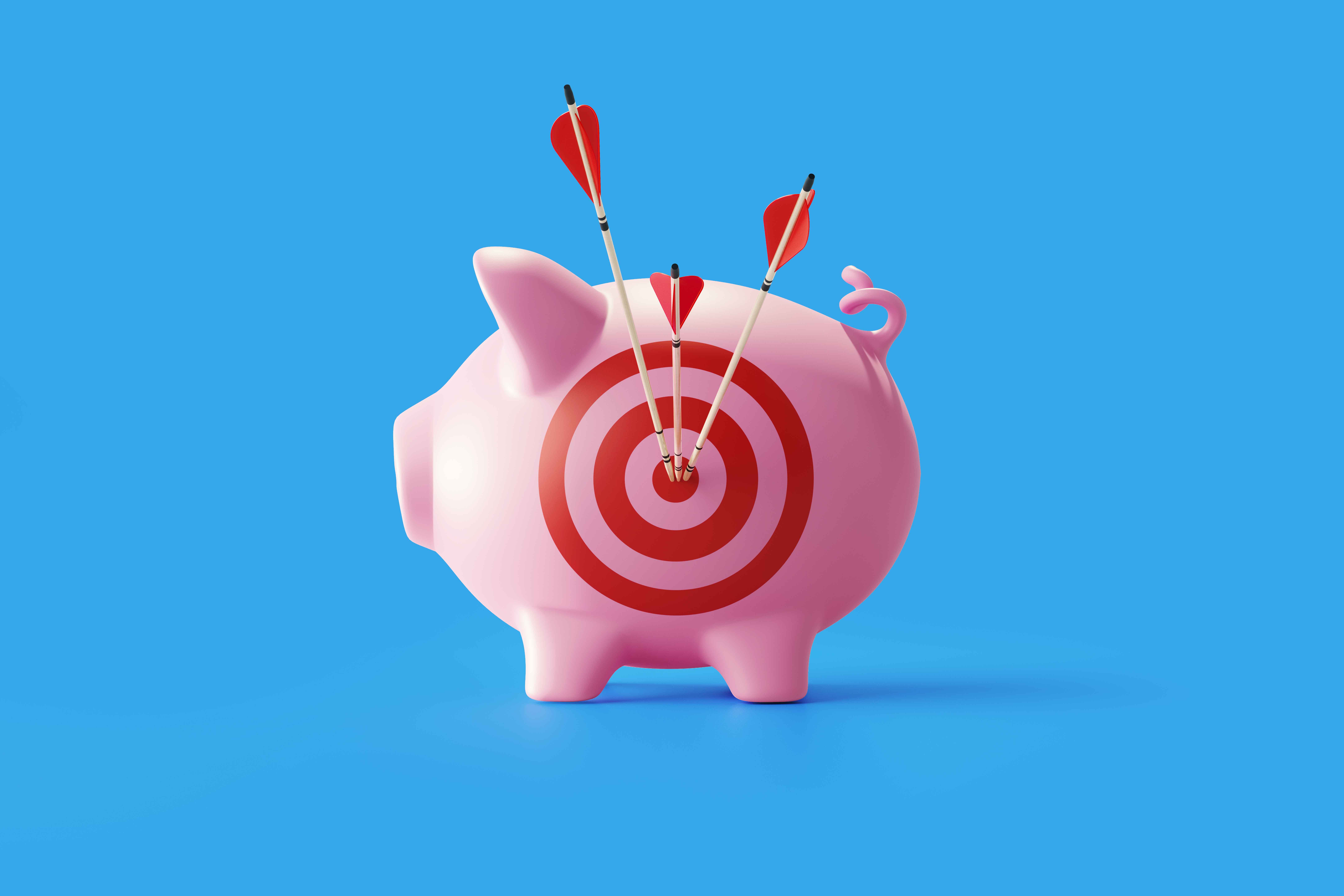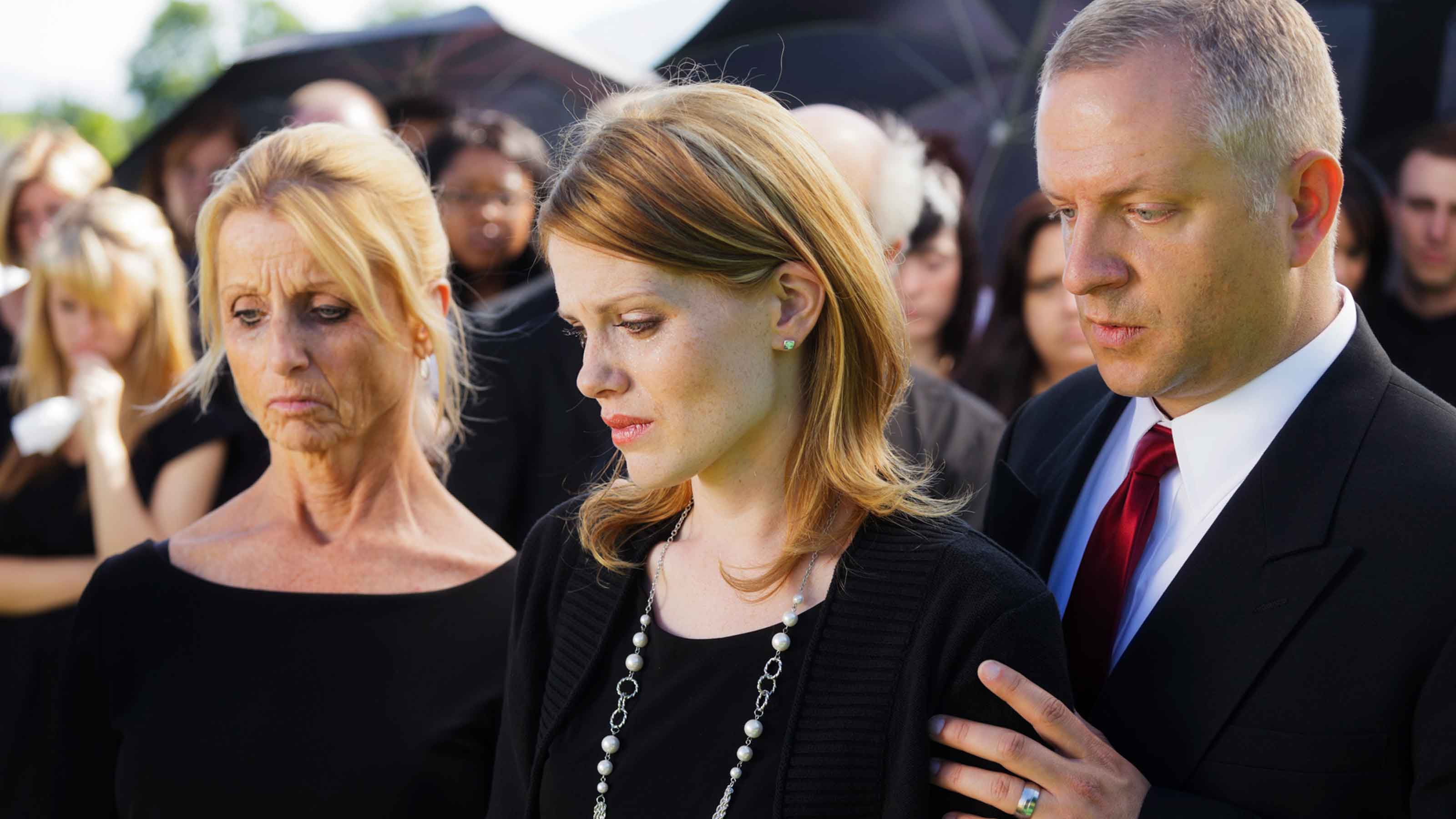PODCAST: Love and Money with Mari Adam
Financial planner Mari Adam helps couples work together to have a good relationship with each other – and their finances. Also, some twists for 2020 tax filing and gadgets that can help when the power goes out.

Profit and prosper with the best of Kiplinger's advice on investing, taxes, retirement, personal finance and much more. Delivered daily. Enter your email in the box and click Sign Me Up.
You are now subscribed
Your newsletter sign-up was successful
Want to add more newsletters?

Delivered daily
Kiplinger Today
Profit and prosper with the best of Kiplinger's advice on investing, taxes, retirement, personal finance and much more delivered daily. Smart money moves start here.

Sent five days a week
Kiplinger A Step Ahead
Get practical help to make better financial decisions in your everyday life, from spending to savings on top deals.

Delivered daily
Kiplinger Closing Bell
Get today's biggest financial and investing headlines delivered to your inbox every day the U.S. stock market is open.

Sent twice a week
Kiplinger Adviser Intel
Financial pros across the country share best practices and fresh tactics to preserve and grow your wealth.

Delivered weekly
Kiplinger Tax Tips
Trim your federal and state tax bills with practical tax-planning and tax-cutting strategies.

Sent twice a week
Kiplinger Retirement Tips
Your twice-a-week guide to planning and enjoying a financially secure and richly rewarding retirement

Sent bimonthly.
Kiplinger Adviser Angle
Insights for advisers, wealth managers and other financial professionals.

Sent twice a week
Kiplinger Investing Weekly
Your twice-a-week roundup of promising stocks, funds, companies and industries you should consider, ones you should avoid, and why.

Sent weekly for six weeks
Kiplinger Invest for Retirement
Your step-by-step six-part series on how to invest for retirement, from devising a successful strategy to exactly which investments to choose.
Listen Now
Subscribe FREE wherever you listen:
David Muhlbaum: Talking about money can be a tough topic for couples, but it’s a conversation that needs to happen. Certified Financial Planner Mari Adam joins us to talk about the techniques she’s learned and shared in decades of advising. Also, an update on tax twists for this year’s filings, and gadgets you’ll need if the power goes out. That’s all coming up on this episode of Your Money’s Worth. Stick around.
David Muhlbaum: Welcome to Your Money’s Worth. I’m senior online editor David Muhlbaum, joined by my co-host, senior editor Sandy Block. Sandy, how are you doing?
From just $107.88 $24.99 for Kiplinger Personal Finance
Become a smarter, better informed investor. Subscribe from just $107.88 $24.99, plus get up to 4 Special Issues

Sign up for Kiplinger’s Free Newsletters
Profit and prosper with the best of expert advice on investing, taxes, retirement, personal finance and more - straight to your e-mail.
Profit and prosper with the best of expert advice - straight to your e-mail.
Sandy Block: I’m doing good, David.
David Muhlbaum: Good, good. Last week, we talked about taxes and how to file for free. And this week we’re going to talk taxes again, but we’re going to go deeper, because it’s tax filing season, and this is when we talk about taxes, and we want to address some of the specific ways that, as I used to say, our blessed year 2020 has affected people.
Sandy Block: That’s right. The people have questions, and we might have the answers.
David Muhlbaum: Okay. I understand some of the questions this year are kind of specific. So let’s try to do the most good for the most people with an additional twist: as quickly as possible, please. What is having the biggest impact this season?
Sandy Block: Well, a whole lot more people collected unemployment benefits last year, and many of them got unemployment benefits for the first time. And a lot of those people didn’t realize that unemployment benefits are taxable, just like a regular paycheck. And you know, it’s not fun to pay them. If you’ve got unemployment benefits last year, then in addition to forms from your employer or employers, you’ll get a 1099-G form from your state.
Sandy Block: Now, when you file for unemployment benefits, you can elect to have 10% of those benefit payments withheld for your federal taxes, but hardly anybody ever does that, because they need the money or they don’t understand that the benefits are taxable. And so, depending on your situation, where, as an employed person, you might’ve been due a refund, now, having been unemployed, you may actually owe tax. As in, you need to write a check by April 15th.
David Muhlbaum: Ouch. Yeah. Well, given that unemployment benefits were, for a while there at the beginning of the pandemic, much more generous than usual — that extra $600 a week from the federal government. I mean, that could have given some people’s income a solid kick for the year. That was the point, right? Stimulate the economy by getting more money into it, but for the individual who owes taxes on a boost, well, yeah. That’s not fun now.
Sandy Block: Right. And I think a lot of people who get into trouble are people who maybe collected unemployment for a few weeks or a couple of months, and then go back to work, because then they’ve got those untaxed benefits on top of their regular income. And don’t forget the states. A handful of states, including some biggies like California, Pennsylvania, and Wisconsin, exempt unemployment benefits from taxes, state taxes, but otherwise, if your state has an income tax, it’s going to want its share too.
David Muhlbaum: Well, got any good news?
Sandy Block: Well, obviously, if this is going to be a problem for you, you want to look for every tax break that you can claim on your tax return to reduce your income. And this year, there’s a little extra boost. Everyone can deduct up to $300 in charitable contributions, whether you itemize or not. Obviously it’s too late to make a 2020 charitable contribution, but if you have historically been someone who takes the standard deduction rather than itemizing, and you’ve just been giving because you’re a good person, you can do good and lower your tax bill at least a little bit.
David Muhlbaum: Oh. And at the risk of confusing things, that $300 contribution, that got extended for 2021, I believe.
Sandy Block: Yeah. And to add to the confusion, and we’ve seen a lot of this in our pages, for 2020, $300 was the max, whether you were single or a married couple filing jointly, but for 2021, it’s $300 per individual, or a couple can claim $600 if they’re filing jointly.
David Muhlbaum: Okay. And here’s another 2020 special: What about people who took a hardship withdrawal from their retirement funds? I mean, I know the cares act spared people the usual 10% early withdrawal penalty, but tax is still due, right? I don’t even know: Is withholding a thing here, or is that accounting up to the individual? Let’s say someone dug into their account because they needed the money. I should hope they didn’t spend it all, right?
Sandy Block: Yeah. Hopefully they put aside something for taxes, but there is a little bit of a break here too. The law allows taxpayers, just for this particular hardship withdrawal, to spread the tax bill over three years, or they can avoid the tax bill altogether if they repay the money.
David Muhlbaum: Within when?
Sandy Block: Within three years. Within three years. But you can do it at any time. If you took a pandemic withdrawal last year, you have two choices, assuming you just can’t pay it back. You can pay the entire tax bill when you file your 2020 tax return, or pay one third of the balance in 2020, 2021, and 2022. And if at any time you roll back the amount that you took out, even after you’ve paid taxes on it, you can file an amended return, and get a refund.
David Muhlbaum: In our main segment, we’ll talk with financial planner Mari Adam about love and money, and keeping a harmonious relationship with both.
David Muhlbaum: Welcome back to Your Money’s Worth. We are joined today by Mari Adam, a certified financial planner from South Florida with over three decades of experience and a specialty in working with couples who want a harmonious relationship, not just with each other, but with their money. Welcome, Mari.
Mari Adam: Thank you very much for having me.
David Muhlbaum: And we’re going to come out and say that it’s no accident that we chose to have you on now. We actually wanted a guest to talk about couples and money around the time of Valentine’s Day. Actually, after Valentine’s Day, which in my humble opinion is kind of a fraught holiday. Like what if you don’t have a honey to buy flowers or whatever for on this specific day, which I would note is named for the patron saint of beekeepers, who got whacked by a Roman emperor.
Sandy Block: All right, I’m going to stop David here, because he’ll go on all day, but maybe we should have a designated couples and money day, because maybe it would be a good idea to have a specific day where people discuss what can be a touchy topic. One that can be hard for a partner to bring up.
David Muhlbaum: Oh sure. We’ll have March 13th, it’ll be national prenup day. Okay, Mari, we’re only half joking. Talking about money can be as fraught as talking about love, right? Could we have a national talk about money day?
Mari Adam: I think we should, because what we do know is that money is probably the number one thing that couples argue about. We know it is a leading cause of divorce. It is very important in a couples relationship, because whether you have money or not really governs whether you can buy a house together, you can send your kids to college, you can even retire. And all too frequently, couples don’t start having this conversation until it’s way too late.
Sandy Block: So, Valentine’s Day is over, and probably if past years are any guide, some people took advantage of the day to propose marriage. I’m guessing they’re prime candidates to have that first talk about money, or should they have done it already?
Mari Adam: It would be good if they’ve done it already. This is something you should do as early as possible when your relationship starts becoming serious, or definitely when you’re moving in together, or something like that. So better late than never. So if you are deciding to tie the knot, it is definitely the time now to sit down and start having, not the conversation, but probably a series of conversations where you can make sure you’re really compatible when it comes to money.
David Muhlbaum: Okay. I’m feeling a little bad about bringing this up, but what about some good old-fashioned Google-stalking? Is it a bad idea to try to, say, check up on the credit of your partner? I mean, all sorts of institutions make judgements about you based on credit scores. How about a little sniffing around?
Mari Adam: Firstly, I think it’s a good idea. And I know women in particular who will not get into a serious relationship without really doing some research into someone’s credit, but it is a good idea. I think when you are serious and you’re sitting down to have this discussion, it’s a great idea to exchange information about your income, your assets, what you want out of life, and also your credit score, because that is going to determine whether or not you can move ahead on some of your plans. So I don’t think it’s invasive. I think it’s very important information that, when you’re entering into a lifelong relationship with someone, or hopefully lifelong, you have this information at hand.
Sandy Block: So Mari, after they’ve had this talk and maybe exchanged credit reports, how does a couple set themselves up for success. Like, how do you execute on a good conversation?
Mari Adam: Well, I think the most important thing is you want to have a candid conversation. You want to be totally transparent. This is not about making someone feel good or bad, or shaming them. It’s really just to exchange information, so you understand how that person handles money, what they want out of life, and really try to set aside a structure that, if you live together or end up getting married, you can see eye to eye and have a good money relationship with shared values.
Sandy Block: So Mari, in the interview that you did with us, that was published in Kiplinger’s Personal Finance, you gave an example of where if one partner makes a million dollars and the other makes $50,000, it’s not fair to split their expenses 50-50. How do you make that work? I mean, what if one spouse doesn’t work at all?
Mari Adam: Well, things have really changed. I think back when I got married, and I’m probably a typical baby boomer, the typical structure was that when you got married, you totally pooled your finances, so you had one joint account and you shared that. That has really fallen by the wayside. So your typical couple now does things a little differently. It’s what I call the yours, mine, and ours. So you have your account. I have mine. Usually, we both contribute into some kind of joint pot, where we pay the major bills out of, like our mortgage, our car payments, and things like that. And we each use our personal accounts for smaller, personal expenditures. That seems to work better for millennial couples, and even baby boomers who are mirroring for the second or third time, it really works better. That way, you have some joint projects together, joint responsibilities, but you also conserve your independence.
Mari Adam: How much money goes into that joint pot? That’s something you really need to work out together. But usually, the most popular is to do it by proportion. So if, again, to use simple numbers, if somebody makes a million dollars, they’d put more money into the pot, if you only make $25,000, you put less in.
Mari Adam: And so, it’s not 50-50, where you’re each putting in the same dollar amount, because clearly that’s not fair when you have somebody who’s making a lot or maybe somebody who’s not working at all. If you have a stay-at-home partner, they may not be contributing to that pot, but I do feel it’s important for the couple to protect that stay-at-home partner by making contributions to their retirement account, and sometimes even a personal investment account, so they have some money they can use without always going and asking for permission.
David Muhlbaum: I really like those terms that you used, yours, mine, ours, in part, because I feel like one of the struggles that couples face is finding the terms, the language to use for how to define how they do this with their money. They’ve hopefully gained an idea of how to manage their own money, figuring out how to manage money jointly requires a new set of terms, and there’s a learning curve there.
Mari Adam: Right. It’s really all about shared values and respect. You do not have to have the same money personality. You don’t have to be identical. Maybe you have one person who’s better at money than the other, but you have to respect the other person, and not make this about control. And I think way too often, in traditional marriages, you see this element of control, where if I’m the one who’s making the money, I get to make all the decisions, and I get more votes at the dining room table. And that is probably the best way to destroy a marriage than any of us have ever seen. So it’s all about this mutual respect, knowing what each partner wants, and protecting them for the future.
Sandy Block: So Mari, this is really a non-Valentine’s Day topic, but we’ve heard a lot of talk about prenups. And I think they kind of get a bad wrap, because it seems so bloodless, but you have a different view on that, right?
Mari Adam: Yes. And not everyone does prenups. You don’t have to, but generally we would strongly recommend doing a prenup, when you are coming into maybe a second or third marriage, when you already have children, or responsibilities that are your own, or when you’re bringing in a substantial amount of assets, or making contributions to joint projects. Like for example, if you’re buying a house together, and you are the one putting in all the money for a down payment, you might want to do a prenup, just to recognize that you’ve had unequal contributions.
Mari Adam: But getting back to why they’re important. People look at a prenup as not romantic, or being selfish, and it’s really not about that at all. It’s protecting the person you love in the relationship, and it could be children as well. So it’s respecting commitments to each other, and trying to protect them. And I don’t want to go off the subject here, but it’s really important to note that there is a huge wealth inequality between men and women. So women in general have about 30 cents saved to every dollar that men have saved. And a prenup is really important to try to protect what you do have, if you’re bringing it into some kind of relationship, and make sure that, usually the woman, although it could equally be the man is protected if that relationship doesn’t work. So they have the ability to retire, put a roof over their kids’ head. Without a prenup, sometimes it’s very difficult to do that if the relationship does not last.
David Muhlbaum: Prenups are a lot about protecting existing assets, but I’m thinking back to something you mentioned earlier about the couple, where you have a non-working spouse, and you need to make sure that that person is essentially protected going forward, by funding their retirement accounts, even if they’re not the one contributing. So that in theory could be a look-ahead thing put into a prenup maybe.
Mari Adam: And it’s a great idea, because first of all, not all relationships are recognized through marriage. So we have more and more people now who buy houses together, have kids together, and they’re not married. So if you’re not married, it’s even more important to have some kind of contractual agreement, because at least marriage gives you some protections depending on the state you’re in, but if you’re not married, you don’t have those protections at all. So then it’s very important to do a prenup. And I think we are concerned about the partner who makes significantly less, who does not work, or like many women, who drops out of the workforce, who opts out, looking in COVID, to take care of children, to provide those childcare responsibilities. And you can see that with COVID, what it has done to the financial welfare of women is truly devastating, where women are dropping out of the workforce to take care of children.
Mari Adam: So it’s very important to provide protection as much as possible. So if you decide you’re going to be a stay-at-home partner, we don’t want you to end up when you’re 55 with nothing. And of course, looking at all the divorce cases out there, they don’t always end up fairly. They don’t always go in your favor. They’re not always probably even-handed. So it is very important to take steps to protect that stay-at-home spouse, or the partner who drops out of the workforce to take care of kids. Otherwise, it just may not happen.
Sandy Block: I did an article a few years ago about older couples deciding not to get married at all because it’s just too complicated. And you know, the societal view of living together has sort of changed, but the other thing, and I think you addressed this in our interview too, is that if the couple isn’t married, and one owns the house and the other doesn’t, and the relationship ends, one of the partners could end up homeless, and you mentioned the importance of having an agreement in that kind of situation too.
Mari Adam: Right. And I guess a good example for most people, let’s say you’re going to build a house. You will undoubtedly have a written contract with that home builder about exactly what you want and when it should be ready, and how much it’s going to cost you, and how they’re going to do the work. It would probably never occur to you to go build a house, buy a house without a written contract, right? Yet people go into lifetime relationships where they perhaps give up their ability to earn a living and rely on someone else without written documentation. And you get back to why you need a prenup or why you need an agreement, if you’re living together or buying a home together, because it’s a complex relationship. It may last, 10, 20, 30, 40, 50 years. So it’s very important to put into writing what those protections are, what those agreements are, if at all possible, because it really does protect you.
Mari Adam: But yes, your example is very good. If you’re in a home together, someone may die prematurely. There may not be life insurance. If that happens, you could be asked to leave the home if you do not own it. So we take all this for granted, but it’s really important to look at what could happen and protect yourself. And that’s also the job of your financial advisor, if you have one, to raise some of these issues and have a talk with both partners to come to a good understanding of what you both want to have happen.
David Muhlbaum: Maybe prenup just needs a rebranding. We need to call it “our agreement” or something.
Mari Adam: That’s a great idea, right?
Sandy Block: A love contract.
Mari Adam: Prenup has a bad name. Yes. A love contract. I love that.
David Muhlbaum: A love contract. Yes.
Sandy Block: It sounds like a reality show. So maybe not.
David Muhlbaum: Time to bring in the naming consultants. So Mari, you’ve been a CFP for 30 years now. I assume that children of your first clients, they have children of their own. I hope they came to you! But what is the biggest shift you’ve noticed with younger couples?
Mari Adam: They have kids of their own and grandkids of their own sometime, and we’re busy setting up college plans for some of these grandkids as they’re born. What’s the biggest shift? I think there’s a big difference between baby boomers and millennials. One of the differences is you’re seeing less of the formalized getting married when you’re buying a house or having kids. That’s just a huge change that we’ve seen, where you don’t always have the protection of law nowadays that you would have in a baby boom generation. The other thing is you’re seeing some mixing up of these gender relationships, less of the nuclear family, where the husband goes to work and the wife stays home, although you still do see a lot of that. And the one thing I think that’s noteworthy is that the millennial generation, very broadly, people in their 20s up to 40 or so, they tend to be a little less financially literate than the baby boomers.
So even though financial lives are getting much more complex now, due to student debt, and healthcare issues, and all these complex issues you didn’t have to deal with maybe when I was leaving college, you have more complex questions at a lower level of financial literacy am ong the millennials. And that is somewhat of concern because they’re being called upon to make really important decisions, like borrowing tens of thousands of dollars to pay for education, without understanding how that is going to affect them for the next 40 years or, getting back to our topic, how it’s going to affect their future spouse or their future partner. And they have a really tough job ahead of them, trying to make the right decisions and making it all work with their partners.
David Muhlbaum: To follow up on that, I wonder if you’re seeing any change coming from social media, and I’m thinking in particular of how, in Venmo, the default setting is that everyone can see what you’re spending money on. Many people obviously turn that off, but yet there does seem to be a change in sensibility about people’s privacy about their money. Does that have any bearing on how couples view each other?
Mari Adam: Well, I think the one thing we’ve noticed about social media, as much as we all love social media, it is perhaps not having a very positive impact on finances. And we do hear reports, especially from millennials and younger clients, that they feel pressured to spend money and kind of live large in a way that baby boomers would not have. So it does lead people to spend more and consume more very publicly. And I think that’s hard for them to keep themselves on track because of that.
So they’ve got a tough job ahead of them trying to make good financial decisions in what, I agree with you, is a very public forum and really applauds this kind of spending, and enjoy your life, which is great, but it’s hard to save money in that environment.
Sandy Block: So Mari, going to the other end of the generational spending. In Florida, I’m sure you talked to a lot of retired couples, and I wonder how retired couples manage spending, and their expectation of spending, because all of a sudden, you’re not pulling down a paycheck. Maybe you’re living off your savings, but you have all this time. Can’t go anywhere now, but eventually we will. So do you have any particular recommendations or thoughts on that?
Mari Adam: We meet with a lot of our retired couples. Sometimes they’re married. Sometimes they’re just living together. But a really positive example we see as they’ll come to us as the impartial person and say, “Hey, you know what we both own. You know what we need to spend. Tell us how to divvy this up to make it fair, because we’re going to listen to you and trust your advice.” Which is very gratifying to hear that, but most of them show good discipline in their spending. They stay within budget. The market has been very good to people over the years.
Mari Adam: So I think many of the couples we work with are in a much better situation than they ever thought they’d be, which is wonderful, but getting back to why it’s important, especially for women to be engaged and not outsource money management to a partner, there’s always a risk when there’s two of you making decisions, that you outsource or leave that decision up to your partner, and they may not make good decisions. Something may happen to them. They may have family influences. You never know. So it’s really important, whatever your age, to make sure you’re engaged, make sure you know what’s going on. You know where those accounts are, you know what the spending is. So you don’t get blindsided, because we unfortunately do see that happen sometimes with older and younger couples. So women, make sure you stay engaged and financial decision making is not something you want to outsource easily. Keep your finger on the pulse always.
David Muhlbaum: Thank you very much, Mari. It’s been a pleasure to have you here today, and we look forward to talking with you more in the future.
Mari Adam: Thank you so much. It’s a wonderful topic. I’m thrilled to be here talking to you today.
David Muhlbaum: Well, as I’ve mentioned over the past month or so, I’ve voluntarily taken myself off the grid for a bit. That was deliberate. A form of vacation actually, but it does give me a better appreciation for the misery that’s going down in Texas and other places in the middle of the country right now. No heat, no coffee is a lousy way to start your morning. And when that stretches into days, it’s obviously not just an inconvenience, but potentially life-threatening.
Sandy Block: You mean the heat, not the coffee.
David Muhlbaum: Maybe both? But no joke, a lot of people are in a pickle, I want to bring this back to as an item I helped update recently called 14 Must Have Items for Your Home Emergency Kit. Now, obviously this is a list of stuff you’re supposed to get ahead of catastrophe. So if you want to help people in Texas right now, find a qualified charity and claim that deduction we talked about, but if you’re not currently iced in, and instead are looking on and thinking, “yeesh,” remember, there are any number of things that could take out your power or infrastructure. I mean, those threats are somewhat regional usually. You know, tornadoes in the midwest, wildfire in California and the mountain west, hurricanes along the Atlantic, and people plan for those accordingly. But as we see today, sometimes there’s a change up.
Sandy Block: So, okay. But a power outage is a power outage. And I remember a very long cold weekend, about 10 years ago, when we didn’t have any power. So it doesn’t really matter why, but is the solution to get a generator? Is that on the list?
David Muhlbaum: Well, actually, yes and no. We, we definitely acknowledged the potential of a generator, and that’s the first go-to for many people, but they have their downsides. They require fuel that you have to keep fresh. They make a lot of exhaust that you have to deal with safely. Can’t run the thing indoors. And, they’re pretty pricey. The first step that we recommend is what’s called a power station, which is not actually something with smokestacks. It’s essentially a big old battery with an inverter built in, and thanks to lithium-ion technology, the price for performance of these has been coming down.
David Muhlbaum: So you’re basically buying a big backup battery. You keep it charging and plugged into the wall, and then when your power is off, you can recharge lots of stuff, not a refrigerator, not anything with a big load, but computer, phones, LED lights, lots of stuff that can probably bridge you through. It won’t keep your house warm, but it will keep you in touch.
Sandy Block: Which is important for emergencies.
David Muhlbaum: Yes.
Sandy Block: I think that’s a really good idea. I’m going to go out and get that big battery. Like as soon as the ice on my driveway clears up, but what else should I have? What’s another must have?
David Muhlbaum: Let me come back to the battery. I just realized that, actually, when I say I was off the grid, I wasn’t always, and in part it was because the little off-the-grid cabin I was staying in had just one of these power generators. So I was able to keep my laptop up, and my phone up, and when I had service, use it. So it wasn’t an emergency situation, but it did come in handy that way. And I’m going to use that as another selling point for one of these. The thing is reasonably portable. So if you want it to take it with you camping, that’s another good use for it. Anyway, to answer your question, what is another thing?
Sandy Block: Right. Because I’m not going camping. So come up with something else.
David Muhlbaum: We talked about connectivity, and one of the problems with connectivity is, if things are bad enough that infrastructure is affected, that cell towers are down, your ability to rely on the internet, and even your cell phone for internet service can be compromised. And when that’s the case, the sure thing of getting information about important stuff about news and weather is a windup emergency radio, and that’s on our list too.
David Muhlbaum: Basically you can run this. You just sit there and you can recharge it from the grid while the grid works. If you run out of power, you can just power it from a solar ...
Sandy Block: Crank it up.
David Muhlbaum: You can crank it up, you can put it in the sun, you can crack it up by hand and top it up. And you can basically get your traditional AM and FM, which cover huge distances, or AM does, and NOAA weather radio, including the weather alerts that come in, like, “BRAAAAAP!” something’s coming. So that is another key item, if you think, well, not, if you think catastrophe is coming, in case catastrophe is coming. And I encourage people to look at the other items, because they can help keep you safe. And for you all down in Texas and whatnot, I hope it gets better soon.
David Muhlbaum: And that will just about do it for this episode of Your Money’s Worth. If you like what you heard, please sign up for more at Apple Podcasts or wherever you get your content. When you do, please give us a rating and review about how fabulous we are, and if you’ve already subscribed, thank you and feel free to go back and add a rating as well. To see the links we’ve mentioned on our show, along with more great Kiplinger content on the topics we’ve discussed, go to kiplinger.com/podcast. The episodes, transcripts, and links are all in there by date. And if you’re still here because you want to give us a piece of your mind, you can stay connected with us on Twitter, Facebook, Instagram, or by emailing us directly at podcast@kiplinger.com. Thanks for listening.
Subscribe FREE wherever you listen:
Profit and prosper with the best of Kiplinger's advice on investing, taxes, retirement, personal finance and much more. Delivered daily. Enter your email in the box and click Sign Me Up.

In his former role as Senior Online Editor, David edited and wrote a wide range of content for Kiplinger.com. With more than 20 years of experience with Kiplinger, David worked on numerous Kiplinger publications, including The Kiplinger Letter and Kiplinger’s Personal Finance magazine. He co-hosted Your Money's Worth, Kiplinger's podcast and helped develop the Economic Forecasts feature.
-
 Ask the Tax Editor: Federal Income Tax Deductions
Ask the Tax Editor: Federal Income Tax DeductionsAsk the Editor In this week's Ask the Editor Q&A, Joy Taylor answers questions on federal income tax deductions
-
 States With No-Fault Car Insurance Laws (and How No-Fault Car Insurance Works)
States With No-Fault Car Insurance Laws (and How No-Fault Car Insurance Works)A breakdown of the confusing rules around no-fault car insurance in every state where it exists.
-
 7 Frugal Habits to Keep Even When You're Rich
7 Frugal Habits to Keep Even When You're RichSome frugal habits are worth it, no matter what tax bracket you're in.
-
 My Four Pieces of Advice for Women Anxious About Handling Money
My Four Pieces of Advice for Women Anxious About Handling MoneyTalking about money can help you take control of your finances.
-
 What You Learn Becoming Your Mother's Financial Caregiver
What You Learn Becoming Your Mother's Financial CaregiverWriter and certified financial planner Beth Pinsker talks to Kiplinger about caring for her mother and her new book.
-
 How Women Can Turn a Gray Divorce Into a Financial Win
How Women Can Turn a Gray Divorce Into a Financial WinGetting divorced later in life can be a big financial blow, especially for women. But, as this financial adviser points out, it can also serve as a positive turning point for growth and independence.
-
 PODCAST: Defusing the Retirement “Tax Bomb” with David McClellan
PODCAST: Defusing the Retirement “Tax Bomb” with David McClellanTax Breaks If you’ve dutifully socked away money in a 401(k) or IRA for years, you could be in for an unpleasant shock when it comes time to take money out of those accounts. Also, the IRS is sending out a surprise round of checks.
-
 PODCAST: The “Gray Resignation” with Liz Windisch
PODCAST: The “Gray Resignation” with Liz WindischMaking Your Money Last Pandemic pressures (and high stock and real estate values) are leading many to try to move up retirement. Plus, tax-filing season gets under way.
-
 PODCAST: The Pros and Cons of Target Date Funds with Tony Drake
PODCAST: The Pros and Cons of Target Date Funds with Tony DrakeFinancial Planning The simplicity of target date funds has made them popular, particularly among 401(k) savers. But investors may be paying a price.
-
 PODCAST: Oh Unlucky Heirs with Tim Steffen
PODCAST: Oh Unlucky Heirs with Tim SteffenFinancial Planning Just because you’re in the will doesn’t mean you’re sitting pretty. Also: Does October deserve its scary reputation for stocks?
-
 PODCAST: The Ins and Outs of IRAs with Ed Slott, CPA
PODCAST: The Ins and Outs of IRAs with Ed Slott, CPARoth IRA Conversions Are you saving for retirement? Good start. But almost everyone has something to learn about optimizing their individual retirement account from IRA strategist Ed Slott. Also, the next round of retirement-planning changes Congress is eyeing.

